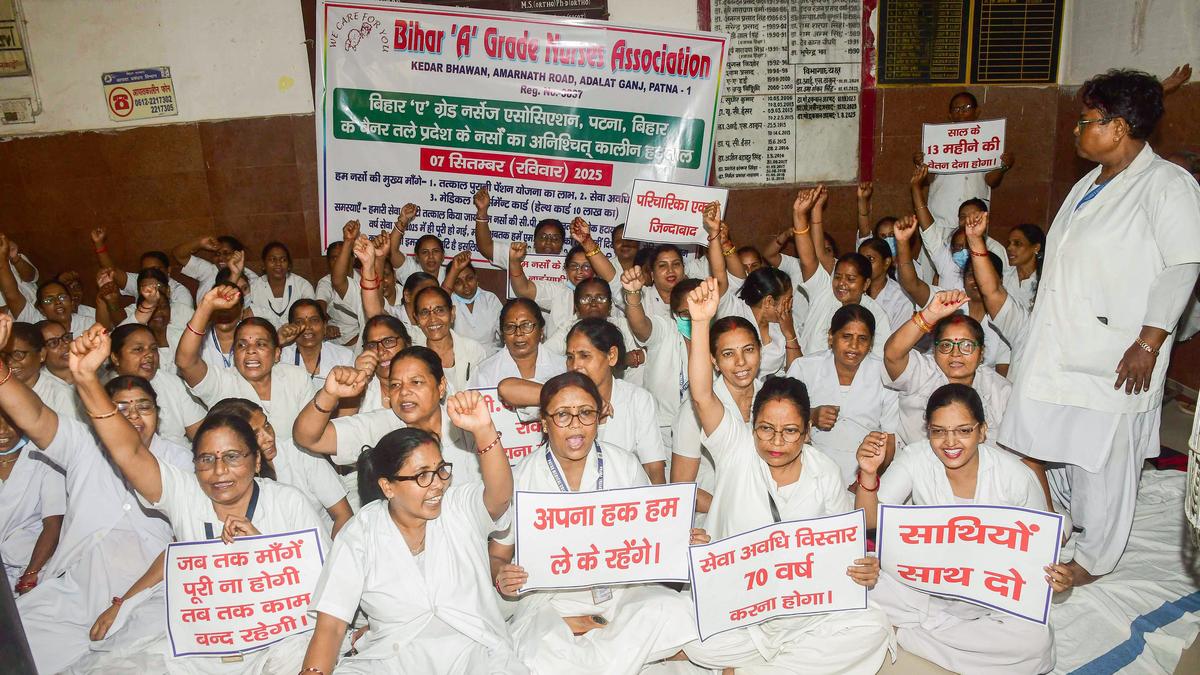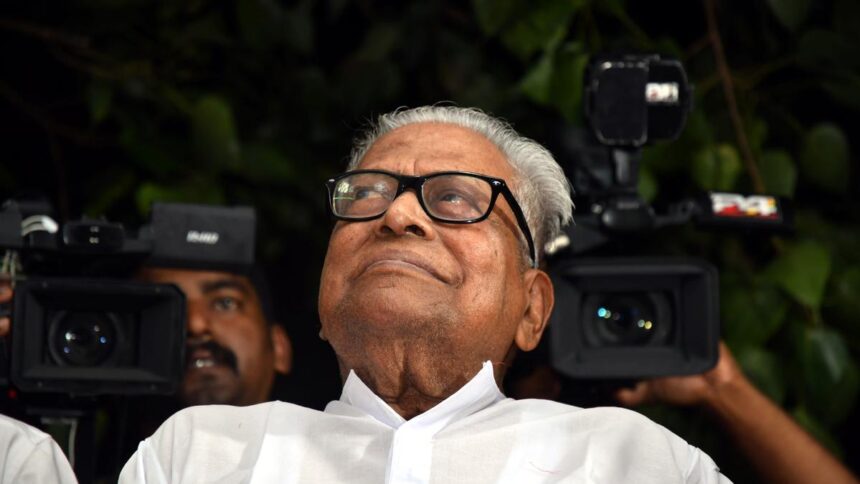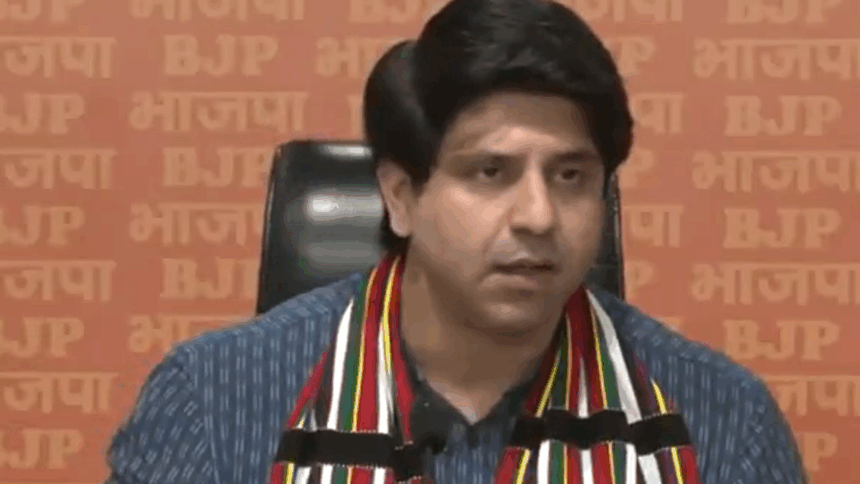
A group of Nurses staged a protest during the indefinite strike for their various demands at Patna Medical College and Hospital, in Patna, on September 7, 2025.
| Photo Credit: ANI
When Ritu*, a nursing graduate from Kerala, wanted to return home to care for her parents, she believed her degree would help her secure a government job nearby. Instead, she found herself trapped. Her college in Andhra Pradesh withheld her original certificates, insisting she complete a so-called “service period” of one year at its affiliated hospital before they would be released.
“I wanted to go back to Kerala and work because of family issues, but my college kept all my original certificates. They don’t call it a ‘bond service,’ yet that’s exactly what it is. Even if I took five days of leave, those days were simply added to extend the service period,” she recalls.
Stories like Ritu’s lie at the heart of a fresh Public Interest Litigation (PIL) filed in the Delhi High Court by the Indian Professional Nurses Association (IPNA), a welfare organisation for nurses.
The petition highlights how private colleges continue to exploit students, despite repeated judicial and regulatory pronouncements declaring the practice unlawful.
Outlawed, yet thriving
The “bond system” — where institutions compel graduates to work in affiliated hospitals for a fixed period and refuse to return their certificates until the term is completed — has been officially abolished for more than a decade.
In 2011, the Delhi High Court directed the Indian Nursing Council (INC) to take proactive steps against the practice, stressing that nurses “should not feel that they are bonded”. Accordingly, the INC issued a circular that same year declaring that service bonds and the retention of certificates were “unethical practices” which were to be stopped immediately.
Around the same time, the Trained Nurses Association of India filed a PIL filed before the Supreme Court, ventilating its grievances with regard to the working conditions of nurses in private hospitals and nursing homes. The association also raised the bond system prevalent in nursing institutes.
In January 2016, however, the top court dropped this issue after the INC submitted that “the said system has now been abolished”. Later, the INC included explicit warnings against the continuation of the bond system in its guidelines for nursing colleges
Serious plight
According to the IPNA, hundreds of complaints against the system still pour in each year from nursing students across India. They narrate a common plight: colleges holding back critical documents like Class 10 and 12 mark sheets, nursing degrees, and registration certificates, all to ensure that students are bound to work in affiliated hospitals for meagre pay.
For many young nurses, the consequences are severe. Without access to their original certificates, they are unable to pursue higher studies, apply for government jobs, or even seek opportunities abroad.
IPNA’s plea said that institutions deliberately avoid giving receipts for the documents they seize, leaving students without proof and vulnerable to exploitation.
Repeated representations made by the IPNA to the INC and State Nursing Councils have largely gone unanswered, according to IPNA joint secretary Siju Thomas.
Grievance mechanism
Ritu recalled how the IPNA and advocate Robin Raju intervened last year, taking up the fight against her college not only on her behalf but also for eight other students whose certificates had been withheld.
Speaking to The Hindu, she said that while she was eventually able to retrieve her documents, many other nursing students in private institutes across the country continue to face the same ordeal.
Filed through advocate Joe Sebastian, the PIL in the Delhi HC seeks the establishment of an online grievance redressal mechanism where students can directly report violations without fear of reprisal. It also calls for regular inspections and strict supervision of private nursing institutions by the INC.
*Name changed on request
Published – September 08, 2025 03:29 am IST






















